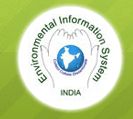Rashtriya Mahila Kosh
In India, the formal financial institutions have not been able to reach the poor households, and particularly women, in the unorganized sector. Structural rigidities and overheads lead to high cost of making small loans. Organizational philosophy has not been oriented towards recognizing the poor as credit worthy. The problem has been compounded by low level of influence of the poor, either about their credit worthiness or their demand for savings services. Micro-finance programs have often been implemented by large banks at government behest. Low levels of recovery have been further eroded due to loan waiver programs leading to institutional disenchantment with lending to small borrowers. ll this gave rise to the concept of micro-credit for the poorest segment along with a new set of credit delivery techniques. The most prominent national level micro-finance apex organization providing micro-finance services for women in India is the National Credit Fund for Women or the Rashtriya Mahila Kosh (RMK).
Micro-finance, as is being practiced by the National Credit Fund for Women or the Rashtriya Mahila Kosh (RMK), could be defined as a set of services comprising the following activities:
- Micro-credit in form of Small loans; primarily for income generation activities, but also for consumption and contingency needs and
- Micro-savings in form of thrift or small savings from borrowers’ own resources
Its loans are available solely and entirely to the poor women as the poor women are the most disadvantaged - they are characterized by lack of education and access to resources, both of which are required to help them work their way out of poverty and for upward economic and social mobility. The problem becomes more acute with their low social status and lack of access to key resources. As women are proved to be better customers than men by managing the resources better, the benefits of the loan are spread wider among the household if loans are routed through women.
Kishori Shakti Yojana
An intervention for adolescent girls (11-18 years) the Kishori Shakti Yojana (KSY) was launched in 2000-01 as part of the ICDS scheme. Kishori Shakti Yojana being implemented through Anganwadi Centres in both rural and urban areas. The scheme aims at breaking the intergenerational life-cycle of nutritional and gender disadvantage and providing a supportive environment for self-development.
Kishori Shakti Yojana (KSY) seeks to empower adolescent girls, so as to enable them to take charge of their lives. It is viewed as a holistic initiative for the development of adolescent girls. The program through its interventions aims at bringing about a difference in the lives of the adolescent girls. It seeks to provide them with an opportunity to realize their full potential.
The broad objectives of the Scheme are to improve the nutritional, health and development status of adolescent girls, promote awareness of health, hygiene, nutrition and family care, link them to opportunities for learning life skills, going back to school, help them gain a better understanding of their social environment and take initiatives to become productive members of the society.
Development of Women and Children in Rural Areas (DWCRA)
The scheme - DWCRA was aimed to improve the socio-economic status of the poor women in the rural areas through creation of groups of women for income-generating activities on a self-sustaining basis. The main strategy adopted under the programme was to facilitate access for poor women to employment, skill upgradation, training credit and other support services so that the DWCRA women as a group could take up income-generating activities for supplementing their incomes. It sought to encourage collective action in the form of group activities which were known to work better and were more sustainable than the individual effort. It encouraged the habit of thrift and credit among poor rural women to make them self-reliant.
Swayamsidha (Indira Mahila Yojna): Haryana
Swayamsidha scheme was launched in the year 2001 dedicated to Women’s Empowerment.It is a Self Help Groups based programme with emphasis on convergence activities.The objective is to ensure that Self Help Groups members avail the benefit of all schemes and services in an integrated and holistic manner. The Swayamsidha Scheme aims at developing strong pressure groups for women's rights, strengthening and institutionalising saving among rural women and their control over economic resources, improving access to micro-credit and involvement of women in local planning and convergence of different agencies for women's empowerment and integrated projects.
CSWB Scheme of short stay homes for women
Under the scheme, grants are given to Voluntary Organizations, to set up Short Stay Homes for women and girls, with a view to protect and rehabilitate those women and girls who are facing social, economic and emotional problems due to family problems, mental stress, social ostracism, exploitation or other causes or are being forced into prostitution and are in mortal danger.
Condensed Course of Education for Adult Women
The Scheme of Condensed Courses of Education was initiated by CSWB in 1958 to cater to the needs of adult girls who could not join mainstream education system or were school dropouts. The scheme aims to provide educational opportunities to girls above the age of 15 years along with additional inputs of skill development / vocational training.
The main focus of the scheme is to ensure that contents of the course are need-based and modified according to local requirement, simultaneously targeting various stages of educational levels of primary / middle / high school and matric / secondary level courses. The program also aims at instilling confidence among adult women through education making them able citizens. The Scheme is being implemented through Voluntary Organizations and educational institutions, having requisite infrastructure and experience in the field of women / social development and education across the country.
Rural Women’s Development and Empowerment (Swa-Shakti) Project
The Rural Women’s Development and Empowerment Project, also known as the Swa-Shakti Project had been sanctioned in year 1998 as a Centrally-sponsored project for a period of 5 years with an estimated outlay of Rs. 186.21 crore. The overall objective of the project is to strengthen the processes, and create an environment for empowerment, of women by establishment of self help groups which will which will improve the quality of their lives, through greater access to, and control over resources. It also aimed at sensitizing and strengthening the institutional capacity of support agencies to pro-actively address women’s needs; and in developing linkages between SHGs and lending institutions to ensure women’s continued access to credit facilities for income generation activities. Other objectives includes enhancing women’s access to resources for better quality of life, including those for drudgery reduction and time-saving devices and increased control of women, particularly poor women, over income and spending, through their involvement in income generation activities which will indirectly help in poverty alleviation.
Distance Education for Women’s Development and Empowerment
The project called "Distance Education for Women’s Development & Empowerment" aims to address some of these critical areas of concern. It is the first such program of its kind in the country. With a view to enhance the capacity of field level functionaries and other development-related practitioners, the CSWB Department has initiated a collaborative project with Indira Gandhi National Open University (IGNOU) and Indian Space Research Organization (ISRO) for starting a certificate course in the Distance Education mode on Women’s Group Mobilization and Empowerment.
Setting up of Employment-cum-Income Generation-cum-Production Units
The program launched in 1982-83 with NORAD (Norwegian Agency for Development Cooperation) aims to improve the lives of poor women. Under this program, financial assistance is given to women’s development corporations, public sector corporations, autonomous bodies and voluntary organizations, to train women in mostly non-traditional trades and to ensure their employment in these areas. Some of the trades are electronics, watch assembling, computer programming, garment making, secretarial practices, community health work, embroidery, weaving, etc. For better monitoring of training projects sanctioned under the NORAD scheme, the State women development corporations have been involved.
Support to Training and Employment Programme for Women (STEP)
This program launched in 1987, seeks to provide updated skills and new knowledge to poor and asset less women in the traditional sectors, such as agriculture, animal husbandry, dairying, fisheries, handlooms, handicrafts, khadi and village industries, sericulture, social forestry and wasteland development for enhancing their productivity and income generation. This would enhance and broaden their employment opportunities including self-employment and development of entrepreneurial skills. Women beneficiaries are organized into viable and cohesive groups or co-operatives. A comprehensive package of services, such as extension, inputs, market linkages, etc. are provided besides linkage with credit for transfer of assets. So far, women in the dairying sector have been receiving the maximum support, keeping in view the nature of demands. This is followed by handlooms, handicrafts, sericulture and poultry.
Scheme for Working Women Hostels
The Government of India being concerned about the difficulties faced by such working women, introduced a scheme in 1972-73 of grant-in-aid for construction of new/ expansion of existing buildings for providing hostel facilities to working women in cities, smaller towns and also in rural areas where employment opportunities for women exist. Based on an evaluation of the existing scheme and suggestions received from the Standing Committee of Parliament on Empowerment of Women, the scheme has been revised to promote availability of safe and conveniently located accommodation for working women who need to live away from their families due to professional commitments. The objective of the scheme is to promote availability of safe and conveniently located accommodation for working women, with day care facility for their children, wherever possible, in urban, semi urban, or even rural areas where employment opportunity for women exist. |





